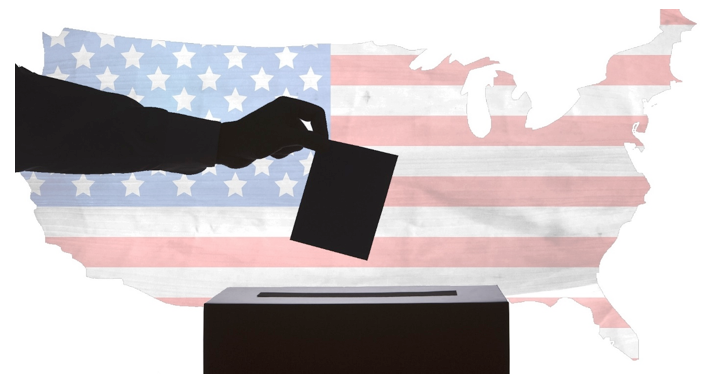CommentsELECTORAL COLLEGE REDUX-At 11:30 p.m. on Election Night 2012, outraged at President Barack Obama’s re-election victory over GOP nominee Mitt Romney, Donald J. Trump tweeted, “We can’t let this happen. We should march on Washington and stop this travesty.”
Karma, of course, has its own cruel irony. The day after Trump’s stunning presidential triumph this week, tens of thousands of Americans unleashed their own outrage by beginning to march, if not on Washington, then at least on the streets of many of America’s cities, trying to stop the travesty they saw in his election.
Those demonstrations on the streets reflect the feeling among millions in American unwilling to accept Trump’s victory, at least without some kind of protest – chanting their slogans “Not My President” and “Trump and Pence make no sense.”
Racist, sexist, and a homophobe. Correct or not, concerns over those allegations against the brash, outspoken billionaire have left the first days after his election full of doom and gloom for protesters and others mourning the bitter, unexpected defeat of Democrat Hillary Clinton.
In response, Trump supporters have taken to social media and denounced demonstrators as hypocrites or worse for not accepting defeat in a democratic process.
This is not new, of course, in American presidential history. In 1969, protesters assaulted Richard Nixon’s inaugural motorcade along Pennsylvania Avenue in Washington with smoke bombs, rocks and rotten eggs.
In 2000, thousands of demonstrators attended George W. Bush’s inauguration ceremonies in the nation’s capital where Bush's limousine was hit by a tennis ball and an egg thrown from the crowd during the inaugural parade.
“Hey, hey, ho, ho, that son of a Bush has got to go," chanted a cluster of protesters among a group of protesters along the parade route. Meanwhile, more than 10,000 protesters marched in San Francisco and Los Angeles.
And as far back as 1860, news of that year’s presidential victory by a Northern Republican led the state legislature of South Carolina to declare Abraham Lincoln's election a hostile act and its intention to secede from the Union.
Understandably, today the Obama White House is urging anyone choosing to protest Trump’s election, to do so non-violently.
“We’re Democrats and Republicans, but we’re Americans and patriots first,” Obama press secretary Josh Ernest cautioned Thursday, amid what some protesters were calling the dawn of a new fascism.
The concern is being further fueled by the fact that, though winning the presidency through an Electoral College majority, Trump apparently lost the popular vote to Mrs. Clinton, much as George W. Bush lost the national vote to Democrat Al Gore.
Mrs. Clinton will have won the popular vote by a wider percentage margin than not only Gore in 2000 but also John F. Kennedy in 1960 and Richard Nixon in 1968.
Incidentally, Mrs. Clinton and George W. Bush are not the first candidates to have won the popular vote but lost the presidency, though the others date back to the 19th century.
In the 1824 election, John Quincy Adams was elected president in a campaign decided by the House of Representatives under the provisions of Twelfth Amendment to the Constitution after no candidate secured a majority of the electoral vote. Andrew Jackson had received the most electoral votes, but lost the presidency in the House vote.
Rutherford B. Hayes won the bitter 1876 presidential election despite Democrat Samuel J. Tilden of New York winning the popular vote. Even the electoral votes were in dispute but was resolved in a deal in which Democrats acquiesced to Hayes's election in exchange for Republicans agreeing to withdraw federal troops from the South, thus ending Reconstruction.
In 1888, incumbent Democratic President Grover Cleveland of New York won the popular vote but was unseated by Benjamin Harrison in the Electoral College when Cleveland failed to carry his home state where New York City’s Tammany Hall political machine helped defeat helped defeat him.
In all those instances, supporters of the defeated candidates have raised the question of electing a president in a way some see counter to traditional democratic rules.
“If we really subscribe to the notion that ‘majority rules,’ then why do we deny the majority their chosen candidate?” asked a disappointed Jennifer M. Granholm, a Clinton supporter and a former governor of Michigan, in the wake of the most recent election.
Trump would appear to agree. Or he did, at least, in a Twitter post on the eve of the 2012 election when he called the Electoral College “a disaster for democracy.” At the time Trump believed that Romney, who he supported, had beaten President Obama in the popular vote. He hadn’t.
Today, the beneficiary of the unique indirect election of the American presidency put in place by the 1787 Constitutional Convention, Trump finds that his gleaming black leather size 12 Oxford is on the other foot.
(Tony Castro, a former political reporter and columnist, is the author of five books, the most recent being “Looking for Hemingway: Spain, The Bullfights and a Final Rite of Passage” (Lyons Press) He is an occasional contributor to CityWatch). Prepped for CityWatch for Linda Abrams.
Explore
Our mission is to promote and facilitate civic engagement and neighborhood empowerment, and to hold area government and its politicians accountable.

 CityWatch Los Angeles
Politics. Perspective. Participation.
CityWatch Los Angeles
Politics. Perspective. Participation.
28
Mon, Apr















